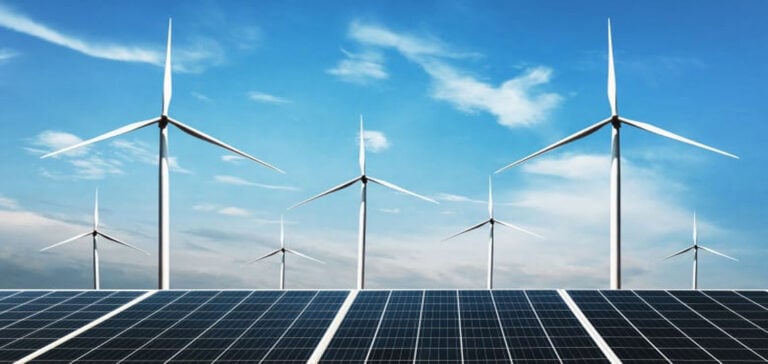Green energy in Europe is growing considerably. This development, recently approved by the EU Council, is a strong signal of Europe’s commitment to energy sustainability and the reduction of greenhouse gas emissions.
Indeed, the EU recently gave its approval, two weeks before an expected announcement concerning support for the wind power sector. This approach is characterized by provisions to speed up authorization procedures for new installations, by establishing “dedicated zones” where approval must be granted within a maximum of 12 months, and increased efforts in the transport and green hydrogen sectors. In addition, a regulatory framework guarantees the “sustainability” of biomass while maintaining its “renewable” status. This recent approval of measures in favor of renewable energies reflects the political will to promote a rapid energy transition. The new measures to speed up plant authorizations and strengthen the regulatory framework bear witness to the strategic importance the EU attaches to this sector.
The dawn of solar power in Europe
In 2022, the war in Ukraine and the need to offset Russian gas requirements have highlightedsolar energy as a key player in solving Europe’s energy trilemma: sustainability, affordability and security of supply. S&P’s Bruno Brunetti predicts that the share of solar power in Europe’s energy mix could double from 8% to 20% by 2030.
However, a number of challenges remain. Inflation and fluctuating prices for raw materials, particularly silicon, can impact solar project costs, while increased dependence on China poses a strategic dilemma. The battery market, which could triple its capacity by the end of 2022, could potentially offer a solution to solar energy storage and distribution problems.
Onshore wind: a cost-effective energy technology
A report by the European Power Service highlights the profitability of onshore renewable energies. The LCOE for onshore wind power is expected to fall by over 50% to €23/MWh by 2050, and although offshore wind power remains costly, a 68% reduction in costs is forecast by 2050. With nearly US$1,000 billion expected to be injected into offshore wind power over the next decade, the outlook for this technology is equally promising.
Europe is also turning to onshore wind power as a cost-effective energy source. Projections of lower costs and massive future investment in offshore wind power demonstrate the region’s commitment to this technology.
Europe’s Renewable Momentum
By combining the advantages of solar and wind power, and backed by strong legislation and investment, Europe is positioning itself as a leader in the green energy transition. The technical progress and decreasing costs of solar and wind power, the integration of advanced battery technologies, and political and financial commitment are strong indicators. They demonstrate that the direction taken is not only possible, but also pragmatic and economically viable.
However, the current trajectory needs to be constantly monitored and adapted to changing global market conditions and technological developments. The planned reform of the EU gas and electricity market in 2023 will be crucial in this process, as the current pricing mechanism is strongly linked to gas prices.
In conclusion, the EU is moving towards an era of renewable prosperity, marked by increased investment and accelerated deployment of green technologies, underpinned by a sound regulatory framework and clear, ambitious renewable targets. The challenge lies in the strategic implementation of these initiatives, balancing economic, environmental and energy requirements for a more sustainable and energy-secure future in Europe.
Final Analysis
This European energy transition is a crucial step towards a more sustainable and energy-secure future. It offers considerable economic opportunities, particularly in the renewable energies sector. Europe is becoming a major player in the green revolution, with massive investment and strong political will. However, challenges remain, including dependence on China and the need for constant market surveillance. The planned reform of the gas and electricity market in 2023 will be a key moment in ensuring the success of this transition.
Ultimately, this energy transformation has the potential to reshape the European energy landscape and make a significant contribution to the fight against climate change. It offers economic, environmental and energy opportunities, and its strategic implementation will be crucial for a greener, safer future in Europe.






















